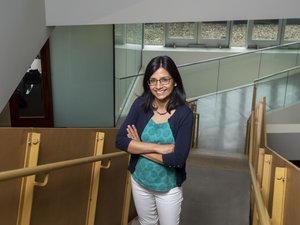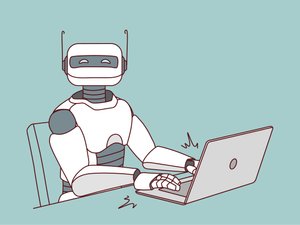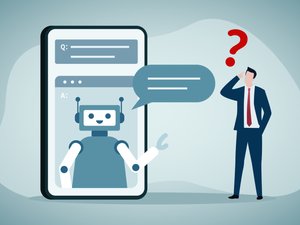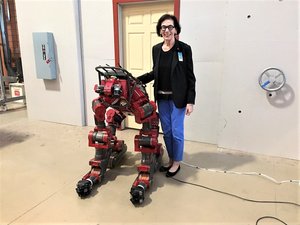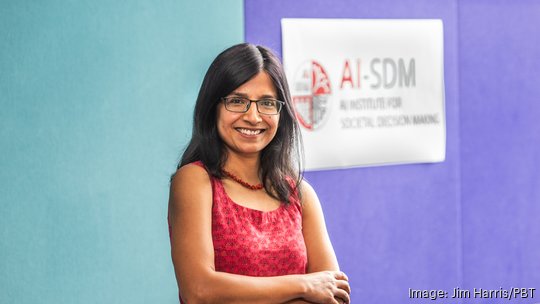
This past May, Carnegie Mellon University received a $20 million commitment from the U.S. National Science Foundation and other federal agencies to create one of seven new National Artificial Intelligence Research Institutes. CMU School of Computer Science Professor Aarti Singh has been tapped as the director of one of these centers called the AI Institute for Societal Decision Making (AI-SDM), which will look to identify and assess AI tools being used by emergency responders, health officials and others who operate in intense and time-sensitive environments. Singh views her appointment as being amid the "shaping point" of AI as it begins to proliferate in many aspects of life and business.
Can you discuss the goals and objectives of the AI Institute for Societal Decision Making?
The goal of the AI Institute for Societal Decision Making is to enable both the policymakers as well as the public to make better decisions based on AI that are principled and data-driven — decisions that are efficient and allow them to trade off things like time-to-decision versus how equitable, accurate or resource-efficient they are. We do this by developing human-centered AI. A key focus is bringing AI researchers together with social science researchers who understand human decision-making and look at that intersection to develop human-centric AI.
AI-SDM’s goal is to work with emergency managers as well as public health officials and also the public to really help them make decisions in two use cases: Disaster management and public health. But really, these are two examples; we’ll be broadly developing human-centric AI that can be used in decision-making.
Can you share an example of that?
Specific examples of that include maternal health interventions. We are partnering with some nonprofit organizations that are working toward engaging with people who are pregnant to deliver the right interventions, identify who is at most risk of something like prenatal or postnatal depression — can we identify that early on? — and then deliver targeted interventions for them. So that’s just one example. We also will be doing disaster drills, that’s another big focus.
How do these AI tools for emergency responders and the like compare to something such as the public-facing ChatGPT?
So one of the key things about this is, unlike ChatGPT, our tools are not going to be released in the wild. We really develop them with participatory design from all the stakeholders. And this includes all the emergency managers, first responders, health officials, community health workers, as well as people working in education and so on. Really, the goal is to make it trustworthy so that people actually adopt this. I think regular feedback from all stakeholders is really key for that.
How do you feel about leading such an endeavor?
It’s a great opportunity, and also a lot of effort has already gone into it. It’s been about a year and a half in the making, so I’m really grateful to all the team members who have contributed in different ways. And really, I’m standing on the shoulders of giants. We are really bringing together a lot of AI researchers, social science researchers, but also people who work in education such as high schools, community colleges, universities — at the graduate and undergraduate level — but then also outreach coordinators.
Many who work with AI are likening the transformation that we’re seeing right now as being similar to the computer and internet revolution that we saw in the late 1990s and early 2000s. Is that a comparison you would make, too?
Yes, in many senses, it is comparable in the potential impact to work like computer technology or the internet did early on, but we are at the very beginning stages. We are getting to the stage where it’s becoming easily accessible and ubiquitous in the sense that there are applications everywhere because there’s data everywhere so people are able to connect to it more. But this is also the shaping point. So I think that’s where regulation and how we take AI forward by actually engaging the people it will be working with or working for every day is key.
Do you have a favorite place or restaurant where you like to unwind after a busy day?
My first go-to place is my home because my kids and family are super important to me. So if you ask about a restaurant, I think places that are kid-friendly like Galley Bakery Square is a great example or The Porch at Schenley where there’s some outdoor space where kids can play while we have a nice meal and a variety of options, especially more vegetarian combinations.
What activities do you enjoy doing with your kids?
Going outside; we have a great neighborhood, so we’ll be riding bikes outside or [playing with] stomp rockets, or just anything that gets us out, especially now that the weather is nice, or even in winter we love to go sledding.
How do you manage your own work-life balance?
Perhaps the most important thing ideally should be self-care. I’m getting better at that, but I’m still in the process of learning. But then after that to me comes family and friends and then work, recognizing this is what ultimately makes you happy and will keep you happy in the long run. It lets me balance time well, and, of course, I enjoy work as well when I’m there. So I try not to overlap the two as much as possible.
Can you expand on your self-care journey and what that means to you?
It’s exercise. I think for a while, work and having kids, it was very hard. But just over the last year, I’m trying to get better control. I joined some group exercise classes that I go to and that gives me my own time. It’s both a mental and a physical form of relaxation.
ABOUT AARTI SINGH:
Title: Professor, machine learning department at Carnegie Mellon University School of Computer Science; director, Artificial Intelligence Institute for Societal Decision Making
Age: 44
First job: Postdoctoral fellow at Princeton University
Education: Ph.D., ECE, University of Wisconsin-Madison
Residence: Squirrel Hill
Family: Spouse, Satbir Singh; children, Arwin and Sonya Singh
Hobbies: Doing fun activities with family, gardening, crafts
Causes: International children welfare, educational outreach and mentorship for women
